Dairy farming is a vital part of the Israeli economy. Israel has a long history of dairy farming, and this tradition has been passed down from generation to generation. Today, dairy farming in Israel is very sophisticated and nutrient-rich. The Israeli dairy industry has been growing rapidly over the last few years due to high foreign demand and increasing domestic consumption. This growth has been helped by government initiatives aimed at developing and improving dairy infrastructure and subsidies offered to farmers.
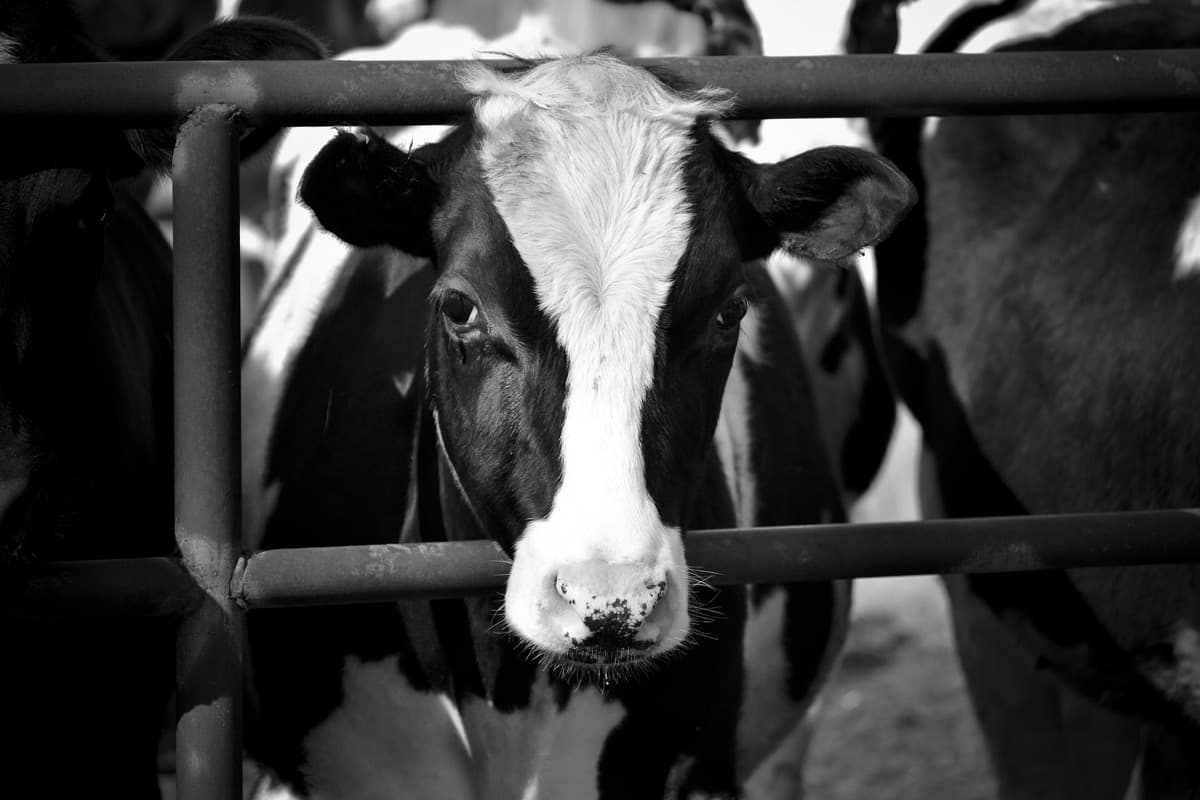
How to start Dairy farming in Israel
Types of dairy animals in Israel
Israeli dairy farming is a very important sector of the agricultural industry. The country has a long and rich history of dairy production, and the dairy industry is still very important today. Israeli dairy products are well-known worldwide, and Israel is one of the leading producers of milk, yogurt, cheese, ice cream, and other dairy products. Israel has three main types of dairy animals: cattle, goats, and sheep. Cattle are the most common dairy animal in Israel and are used for milk production. Goats are used for cheese production, and sheep are used for wool production.
Feeding and care of dairy cows in Israel
Feeding and caring for dairy cows in Israel is complex and delicate. Cows are fed a special diet that includes hay, straw, corn, and other pasture-based feed. They are also given antibiotics to fight against the disease. To keep the cows healthy and produce high-quality milk, it is important to provide them with the best care.
Milk processing in Israel
In Israel, milk processing is a flourishing industry, with many dairy processors vying for market share. The Israeli dairy industry is unique because most cows are kept on small ranches and fed natural feed, resulting in high-quality milk. Israel has a long history of dairy production, dating back to the time of the Holy Temple. Today, Israel is one of the world’s leading producers and exporters of cheese and other dairy products. The Israeli dairy industry comprises several large processors and many small operators.
In case you missed it: Dairy Farming in Poland: Breeds, How to Start
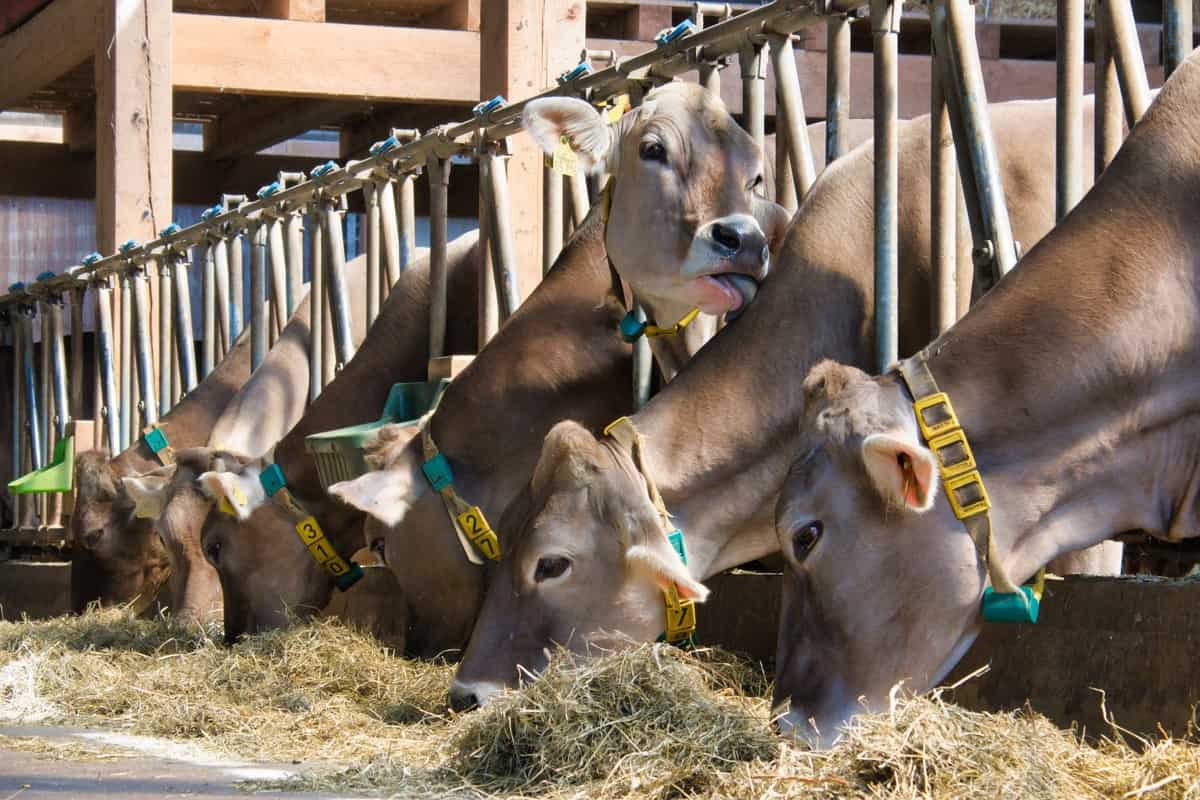
Specialized dairy breeds in Israel
Dairy farming is the most important agricultural sector in Israel. According to the Israeli Dairy Association, there are about 230 dairy farms in Israel, and production is estimated at around 1 million tons per year. The main dairy cattle in Israel are the Ashkenazi and Turkish breeds, which are very different from traditional European cows.
Small-scale dairy farming in Israel
Israel is a country with a long and rich history of dairy farming. Today, small-scale dairy farming is still a major part of the Israeli agriculture sector. Israeli dairy farmers operate in a very diverse environment. They are situated on the coastal plain, in the hills, and the Judean Desert. Consequently, the climate ranges from humid to arid, and the soils are various.
Dairy farming importance in Israel
Dairy farming is an important part of the agricultural sector in Israel. Dairy farming employs over 15,000 people and contributes more than €1 billion annually to the Israeli economy. The dairy industry in Israel is well-developed and highly specialized. The dairy industry in Israel benefits from a favorable climate and fertile land.
As a result, the country has ample quantities of fresh water for cow production and an extensive network of underground water resources that help provide cows with adequate access to drinking water throughout the year. According to the Israeli Dairy Association (IDA), the country’s dairy farmers produce around 1.5 million tons of milk annually, of which around 900,000 tons are exported. The main export markets for Israeli dairy products are Europe, Asia Pacific, and the United States.
Opportunities for dairy production in Israel
Israel is one of the world’s leading dairy producers and has a long history of dairy farming. Dairy production in Israel is a valuable industry that provides food security, contributes to the economy, and supports rural communities. Israel is well suited to dairy farming because of its warm climate, ample water resources, and fertile soil. The country has an average annual rainfall of over 1,800 mm, which helps to produce high-quality milk. Israel also has a temperate climate that allows cows to be milked year-round.
There are several opportunities for dairy farmers in Israel to grow their businesses. The main option is to start a small farm and expand as your business grows. Another option is to purchase an existing dairy farm and invest in it to increase production. Finally, there are also opportunities to invest in dairy products processing plants or marketing campaigns targeting the Israeli market.
In case you missed it: Dairy Farming in Germany: Breeds, and How to Start
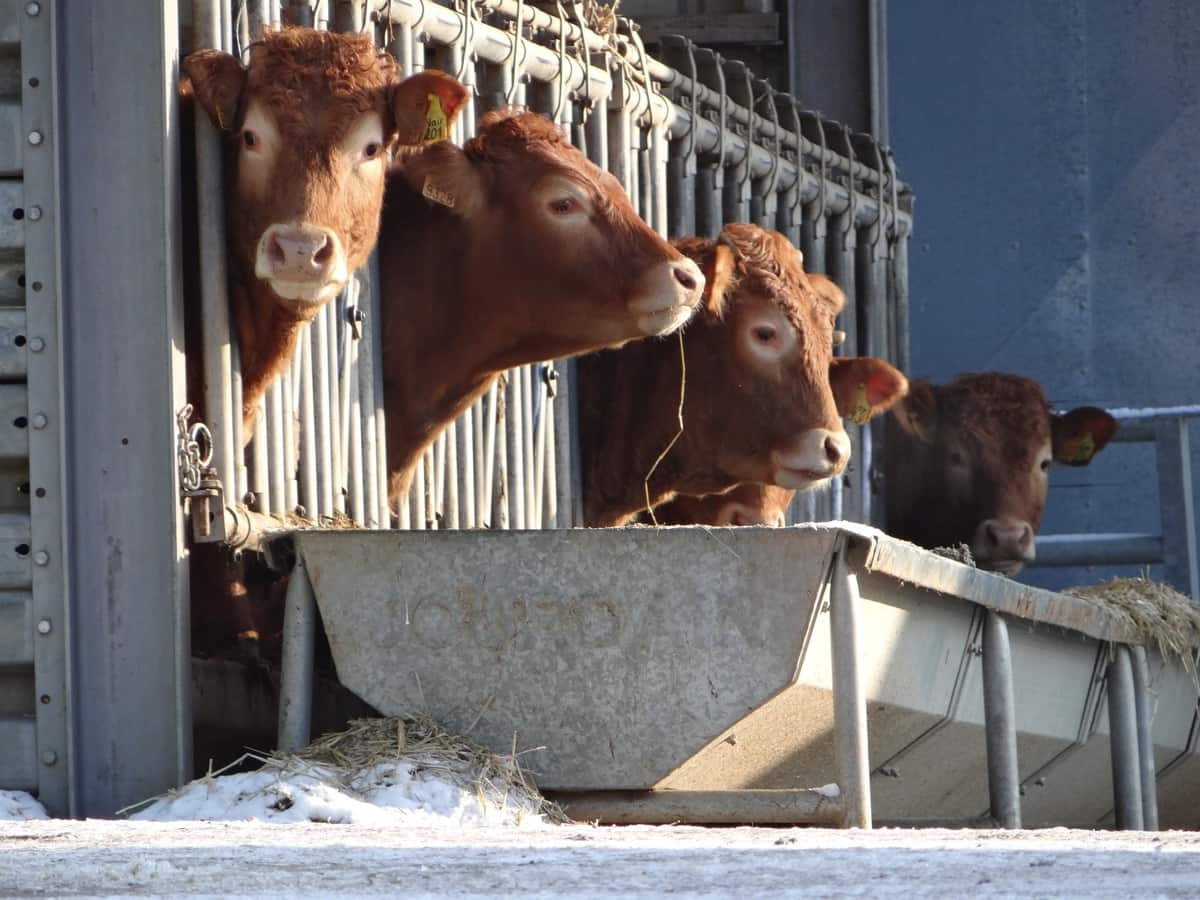
Factors affecting dairy farming in Israel
Many factors affect dairy farming in Israel. First, the climate is big; the country has a temperate climate with mild winters and hot summers. This makes it ideal for dairy farming, as cows can be kept outdoors year-round. Another factor is water availability; Israel has plenty of it, which is good news for farmers because it means they don’t have to worry about scarce resources. Finally, the country’s fertile soil also helps dairy farmers to produce high-quality milk products.
The Israeli dairy industry is highly specialized and relies on various cow breeds developed over the years specifically for dairy farming in Israel. The cows are kept in large herds and fed a high-quality diet that includes hay, straw, corn silage, and fresh feed. Dairy farming in Israel is an important part of the country’s economy and provides a significant source of employment. There are currently more than 1,500 dairy farms in Israel, employing more than 10,000 people.
Dairy breeds available in Israel
- Several breeds of cow can be raised in Israel, including the American Bison, Brown Swiss, Holstein Friesian, and Jersey.
- In Israel, dairy farming is a significant industry. There are a variety of dairy breeds available in Israel, each with its unique characteristics. Some of Israel’s more popular dairy breeds include the Caucasian Black Cow, the Dutch Brown Cow, and the Jersey Cow.
- The Caucasian Black Cow is known for its high yield and fatty milk. The Dutch Brown Cow is a versatile breed well-suited for cold and warm climates. Finally, the Jersey Cow is known for its high milk production and butterfat content.
Dairy farming states in Israel
Israel is one of the world’s leading dairy producers. Dairy farming in Israel dates back to the early days of Zionism when pioneers were looking for land to establish a Jewish homeland. The country has many climates, so it is ideal for dairy farming. There are six main dairy farming states in Israel: Galilee, the Negev, Tel Aviv-Yafo, Central, and North Israel, and the Southern Region. These states have different milk production levels, so there is always something new to learn about dairy farming in Israel.
Galilee is known for its high milk production, while Tel Aviv-Yafo produces the most cheese. There are also many cheese factories in Central and North Israel. The Southern Region produces less milk but has some of the country’s best farmland for milk production. Israeli dairy farmers are constantly innovating and improving their techniques to produce more milk and better-quality cheese.
Is dairy farming profitable in Israel?
Israel is one of the top dairy-producing countries in the world, and the dairy industry is profitable. According to The Guardian, Israeli dairy farmers produce a Minimum Liveweight (MLW) herd of 1,600 cows. The average milk production is 3,000 liters per cow per year. Israel’s National Dairy Development Authority offers several reasons it might be successful as a dairy producer.
Its mountainous terrain supports many cows, plenty of water is available, and farmland is not scarce. Additionally, Israel has developed efficient feed systems that use organic matter and straw from local agriculture to produce high-quality milk products. All these factors have contributed to the country’s long history as a leading dairy producer.
In case you missed it: Dairy Farming in New Zealand: How to Start, Breeds, A Step-By-Step Guide for Beginners
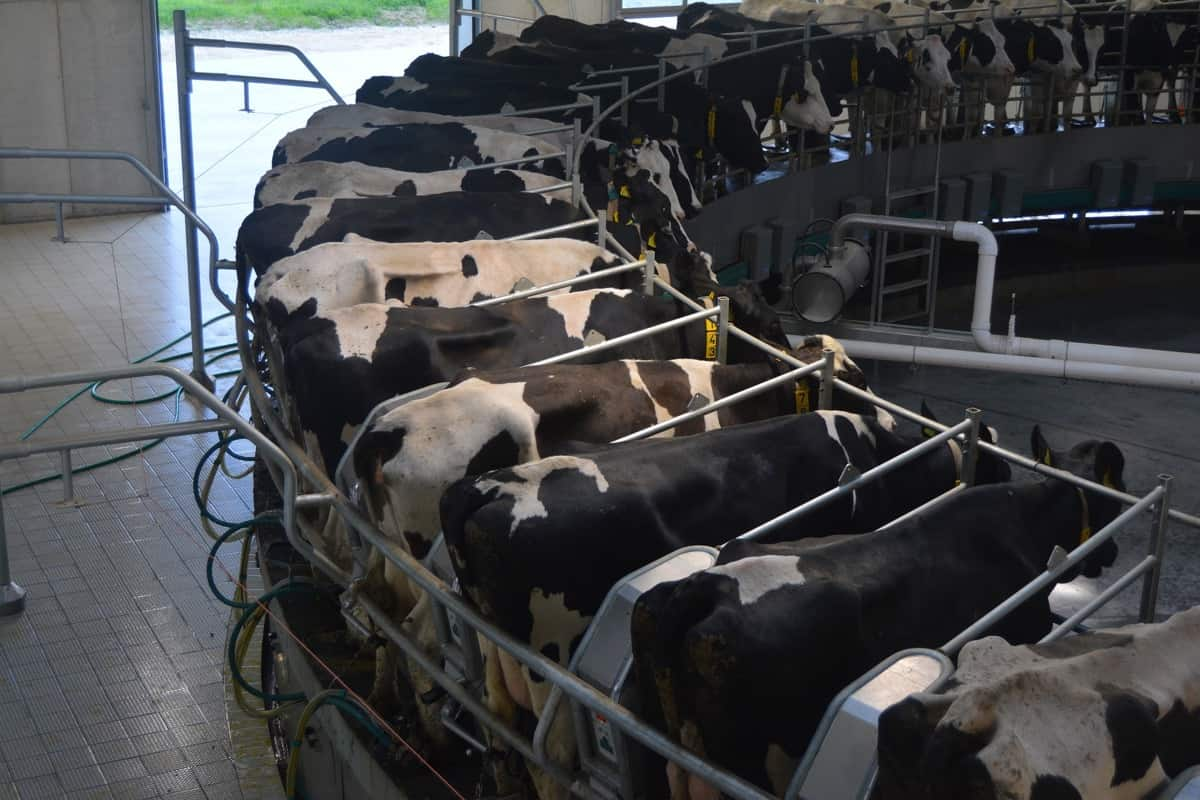
Key rules for starting dairy farming in Israel
- First and foremost, you will need to have an agricultural license.
- Additionally, you will need to get the necessary approvals from the government to begin operations.
- You will also need to purchase appropriate land and construct the necessary facilities.
- Finally, you must keep records of all your activities to ensure compliance with government regulations.
Cost of starting a dairy farm business in Israel
Israel is one of the most fertile dairy countries in the world. As a result, the cost of starting a dairy farm business in Israel is relatively low, especially compared to other Western countries. No special requirements exist for land or livestock, and electricity and water are inexpensive. However, some costs, such as feed and equipment, are associated with dairy farming in Israel.
The initial investment for a dairy farm in Israel can range from $250,000 to $1 million, but average costs are closer to $750,000. Israel’s dairy industry is highly competitive, and the country has maintained a leading position thanks to its high-quality milk products and efficient production processes. Israeli dairies are popular abroad due to their exceptional quality and consistent production.
Tips on raising dairy animals in Israel
- Raising dairy cattle in Israel is profitable, but a few tips can help make the process smoother.
- Israel has a temperate climate conducive to growing cows and producing milk. However, some special considerations must be considered when raising dairy cattle in Israel.
- One important factor is the availability of feed. Israel has a large agricultural sector, so plenty of good-quality hay and other fodder options are usually available. However, if, for any reason, hay or other feed isn’t available, farmers can supplement their diets with concentrate feeds or grain.
- Another consideration is the weather. Cows will not produce as much milk if it’s hot or cold outside. As a result, farmers may need additional animal bedding and protection in cooler months.
Steps to dairy farming business plan in Israel
- Research the market and devise a business plan that meets your needs.
- Draft an agreement with your landlord or landowner.
- Obtain permits and licenses from the relevant authorities.
- Begin to build your herd of cows and calves (or purchase them).
- Hire agricultural experts to help you with everything from feeding to milking to vet care.
- Develop marketing plans and partnerships with local businesses and agricultural organizations.
- Research prices for feed, inputs, and other related expenses and make rational budget adjustments as needed.
- Optimize production by adjusting cow density, spacing, watering regimes, grazing practices, etc., based on results of monitoring and experimentation (this is an ongoing process).
- Manage cash flow by hedging risks and making smart investments when warranted; take advantage of favorable financing opportunities when they arise (e.g., through issuing bonds).
- Continue tweaking operations as needed until your dairy farm becomes profitable – which may take several years or more!
Types of dairy production systems in Israel
- Free-range dairy farming is the most traditional type of dairy production in Israel. Animals are allowed to roam freely outdoors throughout the day and are usually fed a diet consisting mostly of grasses and hay. This system is often thought to be more humane than other types of dairy farming because it allows animals to behave naturally and exercise.
- Intensive dairy farming is a newer production system that has become increasingly popular in Israel over the past few years. Intensive dairy farms usually keep animals in confinement, typically inside a large barn or compound. They feed their cows a diet that consists largely of feed grains rather than pasture grasses and hay, which results in higher milk yields per cow. However, intensive dairy farming can be more expensive than free-range or mixed systems and may not be suitable for all types of farmland.
- Mixed systems combine aspects from two or more of the three traditional types of dairy farming. For example, some farmers might raise their cows on pasture before feeding them grain diets during the winter months when pasture resources are limited. Mixed systems offer farmers flexibility in managing their land and livestock, making them an increasingly popular option as Israeli agriculture continues to change.
In case you missed it: 19 Key Rules for Effective Dairy Farm Management: From Planning to Reduce Production Cost
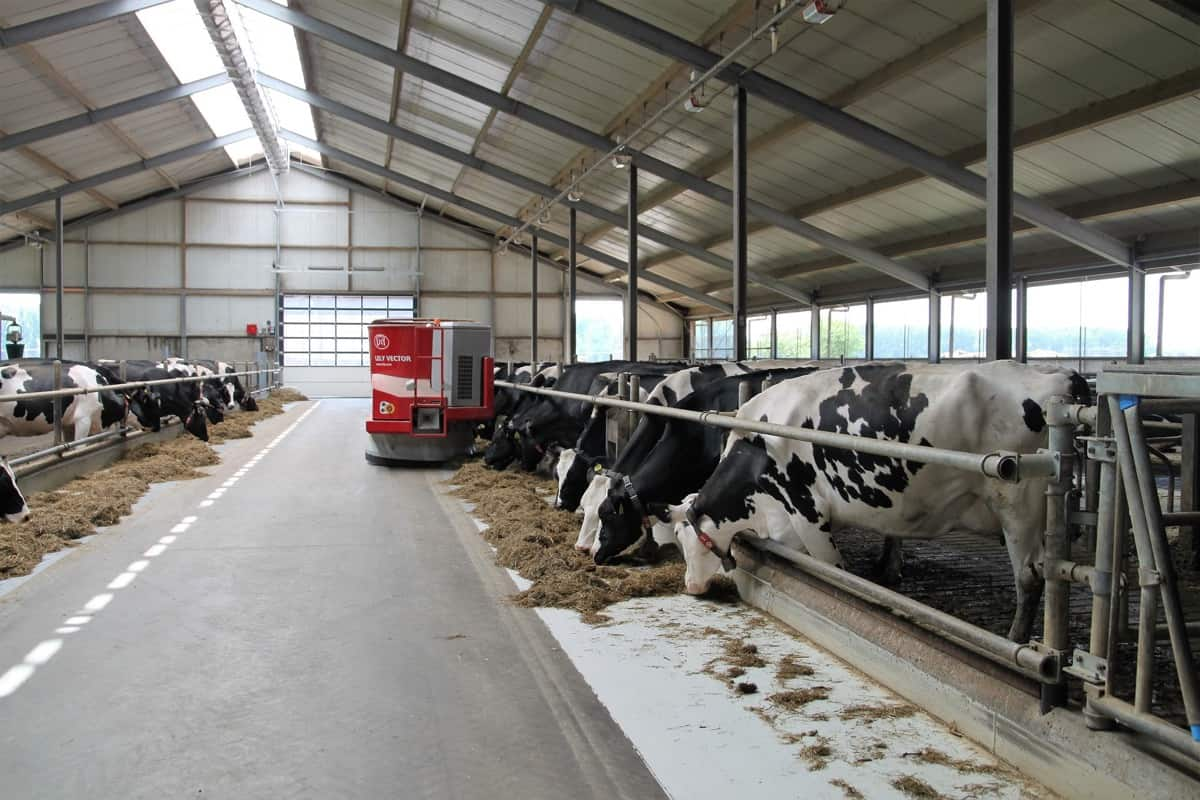
Challenges of dairy farming in Israel
Dairy farming in Israel is a CAFO-based industry struggling due to several challenges. Israeli dairy farmers have been dealing with water shortages, feed shortages, and a high cost of production. Additionally, Israeli dairy farmers struggle to compete with the cheaper milk produced in other countries.
Dairy farming loans and subsidies in Israel
Israel is a leading dairy producer in the Middle East. Dairy farming in Israel is highly subsidized, and loans are available to farmers to help them start and expand their businesses. The government also assists with marketing and storage facilities. There are several types of loans available to dairy farmers in Israel. The most common type of loan is a government-guaranteed interest-free loan that can be used to finance the purchase of cows, calves, or other agricultural inputs such as fertilizer.
The second most common type of loan is a revolving credit line that can finance the purchase or expansion of the dairy farm. Finally, grants are available for new entrants into the dairy farming industry and for upgrading existing farms. The Israeli dairy industry is highly competitive and depends on a stable supply of high-quality milk products. Because of this, the government is closely interested in protecting and promoting the industry. In addition to subsidizing loans and providing other assistance, the government has implemented legislation protecting dairy farmers from competition from imported milk products.
Dairy farming problems in Israel
Dairy farming in Israel faces several problems. The first problem is that the Israeli climate is not suitable for dairy production. Dairy cows need a warm, dry climate with lots of sunshine to produce milk. Unfortunately, Israel’s Mediterranean climate is not conducive to dairy farming. Another problem with dairy farming in Israel is the high cost of land. Dairy farms in Israel are usually large, and it can be difficult to find land that is both fertile and affordable.
Additionally, Israeli dairy farmers face competition from foreign dairy producers willing to pay higher prices for Israeli milk products. Despite these problems, there are several successful dairy farms in Israel. These farms use innovative methods such as cross-breeding cows and goats to create new dairy animals more suited to the Israeli climate.
In case you missed it: How to Start Dairy Farming in UAE from Scratch: A Step-by-Step Guide for Beginners
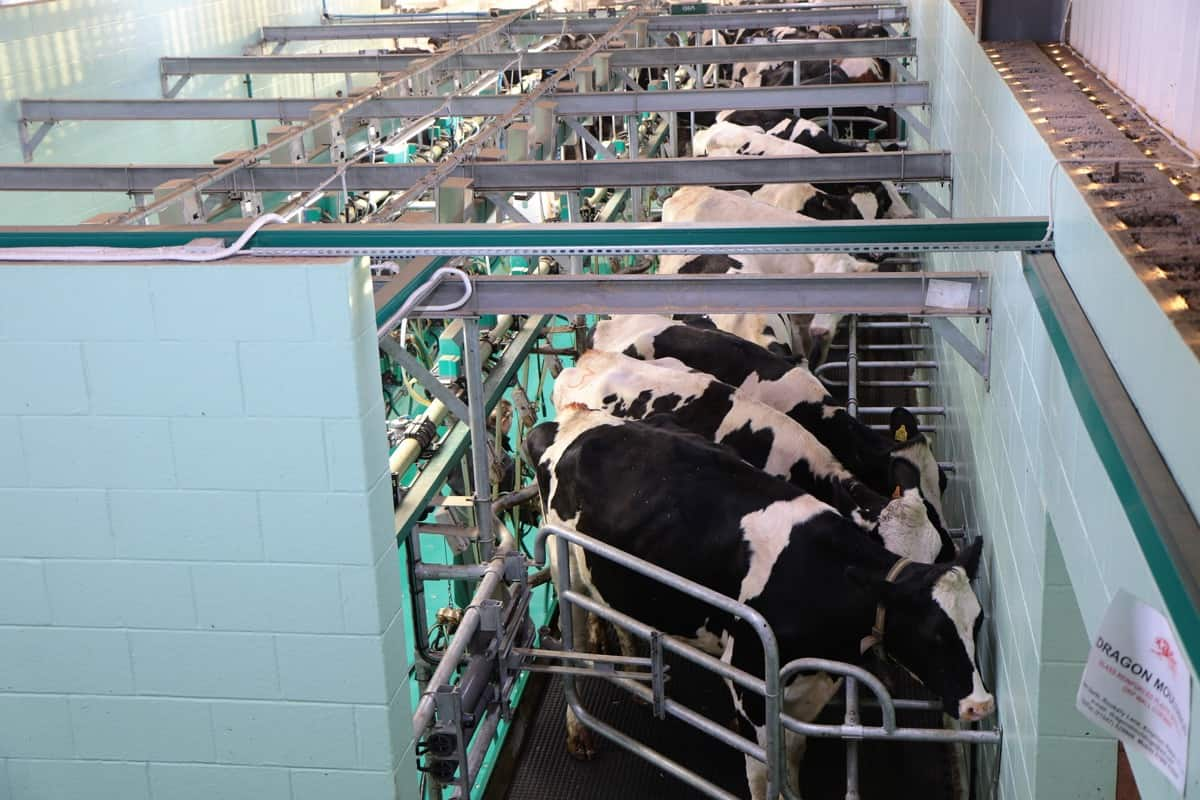
Conclusion
Israel is one of the world’s leading dairy producers, accounting for close to a third of global exports. Dairy farming in Israel is highly mechanized, with nearly two-thirds of farms using automatic milking machines. Milk production is concentrated in the central and southern regions of the country, where modern dairy facilities are plentiful. Israel is home to a thriving dairy industry that has grown rapidly in recent years. The majority of milk produced in Israel is sold on the domestic market. However, a significant amount is exported to European and Arab countries.
- Types of Pesticides Used in Agriculture: A Beginner’s Guide
- Economical Aquaculture: A Guide to Low-Budget Fish Farming
- 15 Common Planting Errors That Can Doom Your Fruit Trees
- How to Make Houseplants Bushy: Effective Tips and Ideas
- Innovative Strategies for Boosting Coconut Pollination and Yield
- Pollination Strategies for Maximum Pumpkin Yield
- The Complete Guide to Chicken Fattening: Strategies for Maximum Growth
- Natural Solutions for Tulip Problems: 100% Effective Remedies for Leaf and Bulb-Related Issues
- Revolutionizing Citrus Preservation: Towards a Healthier, Greener Future
- Natural Solutions for Peony Leaf and Flower Problems: 100% Effective Remedies
- Maximizing Profits with Avocado Contract Farming in India: A Comprehensive Guide
- Natural Solutions for Hydrangea Problems: 100% Effective Remedies for Leaf and Flowers
- The Ultimate Guide to Choosing the Perfect Foliage Friend: Bringing Life Indoors
- From Sunlight to Sustainability: 15 Ways to Use Solar Technology in Agriculture
- The Ultimate Guide to Dong Tao Chicken: Exploring from History to Raising
- The Eco-Friendly Makeover: How to Convert Your Unused Swimming Pool into a Fish Pond
- Mastering the Art of Delaware Chicken Farming: Essentials for Healthy Backyard Flocks
- 20 Best Homemade Fertilizers for Money Plant: DIY Recipes and Application Methods
- How to Craft a Comprehensive Free-Range Chicken Farming Business Plan
- Brighten Your Flock: Raising Easter Egger Chickens for Beauty and Bounty
- How to Optimize Your Poultry Egg Farm Business Plan with These Strategies
- Subsidy for Spirulina Cultivation: How Indian Government Schemes Encouraging Spirulina Farmers
- Ultimate Guide to Raising Dominique Chickens: Breeding, Feeding, Egg-Production, and Care
- Mastering the Art of Raising Jersey Giant Chickens: Care, Feeding, and More
- Ultimate Guide to Raising Legbar Chickens: Breeding, Farming Practices, Diet, Egg-Production
- How to Raise Welsummer Chickens: A Comprehensive Guide for Beginners
- How to Protect Indoor Plants in Winter: A Comprehensive Guide
- Ultimate Guide to Grow Bag Gardening: Tips, Tricks, and Planting Ideas for Urban Gardeners
- Guide to Lotus Cultivation: How to Propagate, Plant, Grow, Care, Cost, and Profit
- Agriculture Drone Subsidy Scheme: Government Kisan Subsidy, License, and How to Apply Online
- Ultimate Guide to Raising Araucana Chickens: Breed Profile, Farming Economics, Diet, and Care
- Bringing Hydroponics to Classroom: Importance, Benefits of Learning for School Students
- Ultimate Guide to Raising Polish Chickens: Breed Profile, Farming Economics, Diet, and Care
- Ultimate Guide to Raising Australorp Chickens: Profile, Farming Economics, Egg Production, Diet, and Care
- Silkie Chicken Farming: Raising Practices, Varieties, Egg Production, Diet, and Care
- Sussex Chicken Farming: Raising Practices, Varieties, Egg Production, Diet and Care